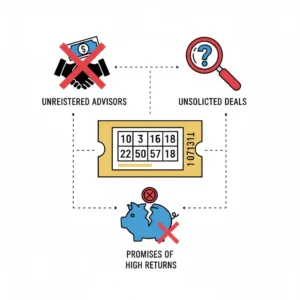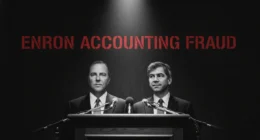The Curse Begins
It started with a smile and a ticket.
In 2002, Jack Whittaker, a 55-year-old contractor from West Virginia, won $314.9 million, the largest single jackpot in U.S. history at the time. He laughed, cried, and promised to live humbly.
But the lottery curse had already whispered his name.
Within a few years, his granddaughter was found dead. His home was robbed. He faced multiple lawsuits, arrests, and heartbreaks. The man who once gave strangers stacks of cash ended up alone, broke, and haunted.
He once said, “I wish I’d torn that ticket up.”
This isn’t an isolated tragedy.
It’s a pattern—one as predictable as it is horrifying.
The Seduction of Sudden Wealth
Winning the lottery feels like a miracle. But miracles can be cruel.
Sudden money doesn’t change who you are—it magnifies it.
First comes joy. Then shock. Then confusion.
Most winners have never handled that much cash. According to the National Endowment for Financial Education, roughly 70% of sudden-wealth recipients lose everything within a few years.
They buy, lend, trust, and spend until the money is gone and something inside them goes with it.

Victim Story: Denise’s Dream Turned Nightmare
Denise Morales, 37, from Florida, thought her life was saved when she hit $12.5 million in 2015.
A single mother of two, she bought a modest house, a few cars, and started gifting money to family.
Then came the “friends.”
First, an ex-boyfriend asked for a “loan” to start a business.
Then, a cousin begged for help with “emergency medical bills.”
Within months, Denise had given away over $2.3 million and taken on more debt than before she’d won.
By 2018, she was living off credit cards. Her house was foreclosed. Her kids left for college on loans she couldn’t co-sign.
She told a local reporter, “I thought I was helping people. Turns out, they were helping themselves.”
Her story isn’t rare. It’s just quieter than the jackpot cheers.
The Scale of the Problem
The dream of instant fortune still lures millions.
Americans spend over $113 billion each year on lottery tickets.
That’s more than they spend on movies, video games, books, and sports tickets combined.
Yet, while the odds of winning Powerball are 1 in 292 million, the odds of losing everything afterward are far higher.
Researchers call it “Sudden Wealth Syndrome,” a psychological collapse under financial pressure.
Winners spiral into depression, addiction, and paranoia.
They lose marriages, families, and, in some cases, their lives.

How the Curse Works
The curse doesn’t arrive all at once.
It creeps in quietly, slowly, and seductively.
Step one: Isolation.
Money draws people in, but trust erodes. Old friends vanish; new ones appear with smiles that hide motives.
Step two: Overspending.
Luxury feels like freedom—until it becomes a habit. Taxes pile up. Investments go wrong.
Bad advice becomes poison.
Step three: Collapse.
Debt collectors replace accountants. Media exposure invites predators.
Eventually, the dream curdles into fear.
Even the Federal Trade Commission (FTC) warns that “windfall scams” often target lottery winners directly.
Fake advisors, fraudulent charities, and predatory lenders circle like vultures.
Victim Story: Harold’s Final Gamble
Harold Jensen, 63, from Michigan, won $8.7 million in 2011.
He was a retired factory worker—honest, simple, and hopeful.
He bought a cabin by the lake and a boat he’d always dreamed of.
Then, the calls began.
“Investment opportunities,” “exclusive tax shelters,” “friends of friends” promising 15% returns.
Within two years, Harold lost nearly $6.1 million to fraudulent schemes.
According to the **Securities and Exchange Commission (SEC), scammers often “exploit emotional euphoria and greed” after sudden wealth.
Harold filed for bankruptcy in 2016.
By 2018, he was living in his sister’s basement.
He once told a neighbor, “The money didn’t ruin me. The people did.”
Warning Signs: The Red Flags
🚩 Red Flag 1: Strangers Offering “Exclusive” Deals
No legitimate investment requires immediate decisions or secrecy. Verify with the SEC’s investor.gov before sending money.
🚩 Red Flag 2: Sudden Flood of “Friends”
If people start contacting you after hearing about your win, step back. True friends don’t demand cash.
🚩 Red Flag 3: Unregistered Advisors
Always confirm that financial advisors are licensed through the **Financial Industry Regulatory Authority (FINRA)**.
🚩 Red Flag 4: Promises of High Returns
If someone guarantees profits, it’s a scam. Real investments involve risk.
🚩 Red Flag 5: Charity Pressure
Scammers often pose as charities. The FTC maintains a list of verified organizations. Check before donating.
🚩 Red Flag 6: Media Exposure
Public winners face threats, extortion, and fraud. Many states allow anonymous claims—use that right if possible.
🚩 Red Flag 7: No Financial Plan
Sudden wealth without structure leads to collapse. Hire a tax attorney and a certified financial planner immediately.

What To Do If You’re Targeted
If someone contacts you about “managing” or “protecting” your winnings:
Pause before acting.
Document everything. Keep screenshots, emails, and names.
Report scams to the FTC’s ReportFraud portal.
Contact law enforcement if threats or blackmail occur.
Consult a lawyer before signing any financial document.
Remember: the predators move fast. You must move smarter.
Protecting Yourself From the Curse
Winners who survive do a few key things differently:
They stay anonymous whenever possible.
They form trusts to manage assets quietly.
They hire independent, credentialed advisors.
They create **monthly spending limits.
They keep their circle small—and private.
Most importantly, they understand that money doesn’t erase danger. It attracts it.
The Haunting Truth
The lottery curse isn’t magic. It’s math, psychology, and human greed.
Every dollar you win invites new hands to grab it.
Every smile hides a question: What can I take?
Whittaker died in 2020, still calling his win a curse. Denise works two jobs. Harold still dreams of his lake house.
The money is gone, but the ghosts remain.
So next time you hold that ticket, remember:
You’re not just betting on luck.
You’re betting on your sanity.
Resources
[1] National Endowment for Financial Education (NEFE)
[2]Federal Trade Commission (FTC) Report Fraud
Related Articles
Credit Repair Scams: Why ‘Fix Your Credit in 30 Days’ Is Always Fake






